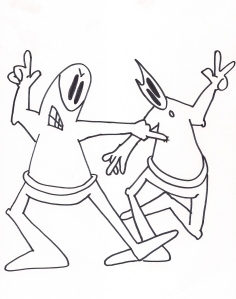 I like Errol Morris’ documentaries. He’s not my favorite director, but he picks interesting subjects and films them creatively.
I like Errol Morris’ documentaries. He’s not my favorite director, but he picks interesting subjects and films them creatively.
Tabloid is no exception. A Morris-helmed documentary about the adventures of Joyce McKinney – a supposedly all-American gal who captured the loins of the British press in the 1970s by allegedly abducting and sexifying a Mormon boyfriend whilst in the United Kingdom – the film offers an intriguing, sometimes tongue-in-cheek look at a very smart, possibly disturbed woman and the bizarre life she once led. Interviewees include McKinney and a couple of British tabloiders who worked on the story back in the day, who provide a variety of opinions and perspectives. The movie does leave things relatively ambiguous as to who is the wronged party, and it’s a credit to Morris that it does so.
A few issues: Some of the edits aren’t seamless, leaving wide swaths of black screen before jumping to the next scene. And then there is the humorous commentary, consisting of certain words blown up to immense proportions on camera, as well as old footage meant to shed light on amusing or telling situations. I think the film would’ve worked better without these bells and whistles; it would’ve seemed more impartial, allowing us to draw our own conclusions.
Nevertheless, it’s an interesting documentary – another strange, beguiling piece of filmmaking by a very inventive director. He’s got quite a strong portfolio right now. I’d be curious to see what he adds to it.


